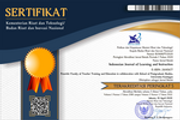Contemporary education reform and national reinvention in post-independence Ukraine: The national qualifications framework, bridging state and global perspectives
Abstract
The concepts of internationalization, Europeanization, and globalization form the policy backdrop for this paper about contemporary education reform in Ukraine. The domain of education reform in any context presents a dilemmatic space fraught with tensions and paradoxes, deriving from multiple understandings of policy. Policies are snapshots of living experience with profound impact on individuals, communities, and societies. They delineate the action parameters of people, processes, and relationships by defining governance, risk, and compliance. They respond to new situations in history and so, are never settled entities. For these reasons, policies are embedded in daily lives of all citizens and this is why policies matter, especially true of education policies which attempt to weave the development and future of each individual together. Hence, a critical analysis of education policy, one which brings evidence and interpretation to bear on decision-making and social practice, can help to address a policy complex function in driving societal reforms. Specifically, this paper sets out to investigate the National Qualifications Framework (NQF) of Ukraine (2011), a policy technology which represents an undisguised neoliberal approach of the modern national curriculum system reform of Ukraine. This is the example of “globalized localism” through the intermediation of the European Higher Education Area (EHEA) and Ukraine participation in the Bologna Process. The author concludes that, in Ukraine, the ‘already’ and the ‘not yet’ of education policy reform embodied in the NQF are held together in intimate tension; a governance-innovation tension, the hope of the further institutional democratization that will permit the NQF mechanism to include more voices and to actualize more equitable social development opportunities.
Full Text:
PDFDOI: https://doi.org/10.25134/ijli.v3i2.3682
Refbacks
- There are currently no refbacks.
Copyright (c) 2020 Indonesian Journal of Learning and Instruction

This work is licensed under a Creative Commons Attribution-NonCommercial-ShareAlike 4.0 International License.

